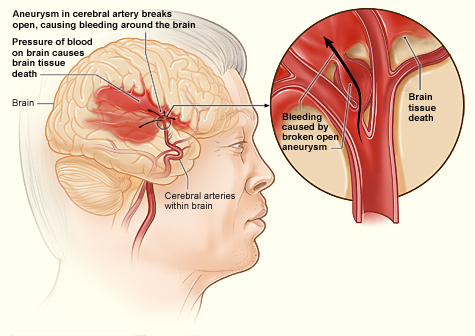
Alzheimer’s and Dementia
First of all, the distinction between dementia and Alzheimer’s is a very important one. “Dementia” is a term used to describe several different diseases and disorders of the brain. It is characterized by the progressive deterioration of mental abilities such as thinking and memory, changes in behavior, and a decline in skill levels and functioning. There are a number of different types of dementia, of which Alzheimer’s is the most common. Dementia is a set of symptoms, while Alzheimer’s is a specific disease of the brain.
Dementia of the Alzheimer’s type is caused by a neurological degeneration. Chemical and structural changes in the brain slowly destroy the ability to learn, remember, and relate to others. It is appropriately known as a late-life disease. About 5-8% of people over the age of 65 have some form of dementia and this number doubles every five years above that age. A dementia diagnosis in a person below the age of 65 is known as an “early onset” case. Age is a prevalent risk factor, but it is not the cause of the disease. Other risk factors include family history, genetics, and overall health.
What is important to remember about Alzheimer’s is that it is not simply a natural part of aging, nor is it the only cause of forgetfulness and memory loss. Having a few “senior-moments” is not necessarily cause for alarm. Other possible causes of dementia-like symptoms include normal age-related cognitive decline, side-effects of medication, depression, chronic stress, metabolic ailments, infections, and hearing loss.
Alzheimer’s is a progressive disease with different stages progressing from mild forgetfulness to widespread brain impairment. Breaking this process down into three stages can help provide general guidelines for understanding the progression of the disease and planning appropriate care. The three stages are early, middle and late.
Characteristics of the early stage include memory loss of recent conversations or events, repeated questions, mild coordination problems, and mild word-finding difficulties, and difficulty performing familiar tasks. They also may show change in their social interactions such as isolating and taking less initiative. Their overall judgment and decision-making is compromised and reminders to do activities of daily living (ADLs) are needed. The duration of this stage usually lasts two to four years.
The middle stage shows increased progression of these symptoms. Then, the late stage usually brings the inability to perform daily care independently. They may need assistance with feeding and may become mute or exhibit limited ability to communicate. They will often become immobile and may experience weight loss due to swallowing and eating difficulties.
An Alzheimer’s diagnosis can be a confusing, frustrating, and scary experience. While there is currently no cure, there are treatments available for the symptoms. An early diagnosis can prolong independence, so be sure to talk to your doctor if you see warning signs. Just like any other major change, you need time to adapt. Also, reach out for support. Continuing to live a socially connected and leading an active life will be beneficial. Communicate with your family and loved ones about your wishes and desires as you start down this journey.
If you have a loved one that has been diagnosed with Alzheimer’s you may be dealing with a host of emotions yourself. You may feel like the person you knew is now a stranger and this can be overwhelming. I would encourage you to learn as much as you can about this disease so that you will understand what to expect and will be more able to plan for effective care. This knowledge will help you to focus on and honor the strengths and abilities that your loved one still has throughout the stages. Also, do not take on the caregiving journey alone. Don’t forget to take care of your own health. Caregivers often experience a decline in health as a result of self-neglect.
What you can do to practically help someone living with Alzheimer’s is provide an environment that is as stress-free and calm as possible. Daily routines should be maintained and emphasis should be on maintaining abilities, not on teaching new skills. Some adjustments to consider within the living environment to reduce confusion are having solid, one color flooring, pictures and signs to help a person find their way around the house, and the covering or removing of mirrors, approach from the front and establish eye-contact, but do not stare, speak clearly, slowly, and simply. It is important to give them plenty of time to respond. Be aware of gestures that could be received as threatening, and never shout or rush the person.
A very valuable way to spend time with a person with dementia is reminiscing. Long-term memories are retained further into the disease than short-term recall. Involve people who knew the person before the disease and be encouraged: that person remains, though it becomes harder to reach them.
For reliable information and support, you can call the Alzheimer’s Association 24/7 Hotline: 1-800-272-3900 or visit www.alz.com.




